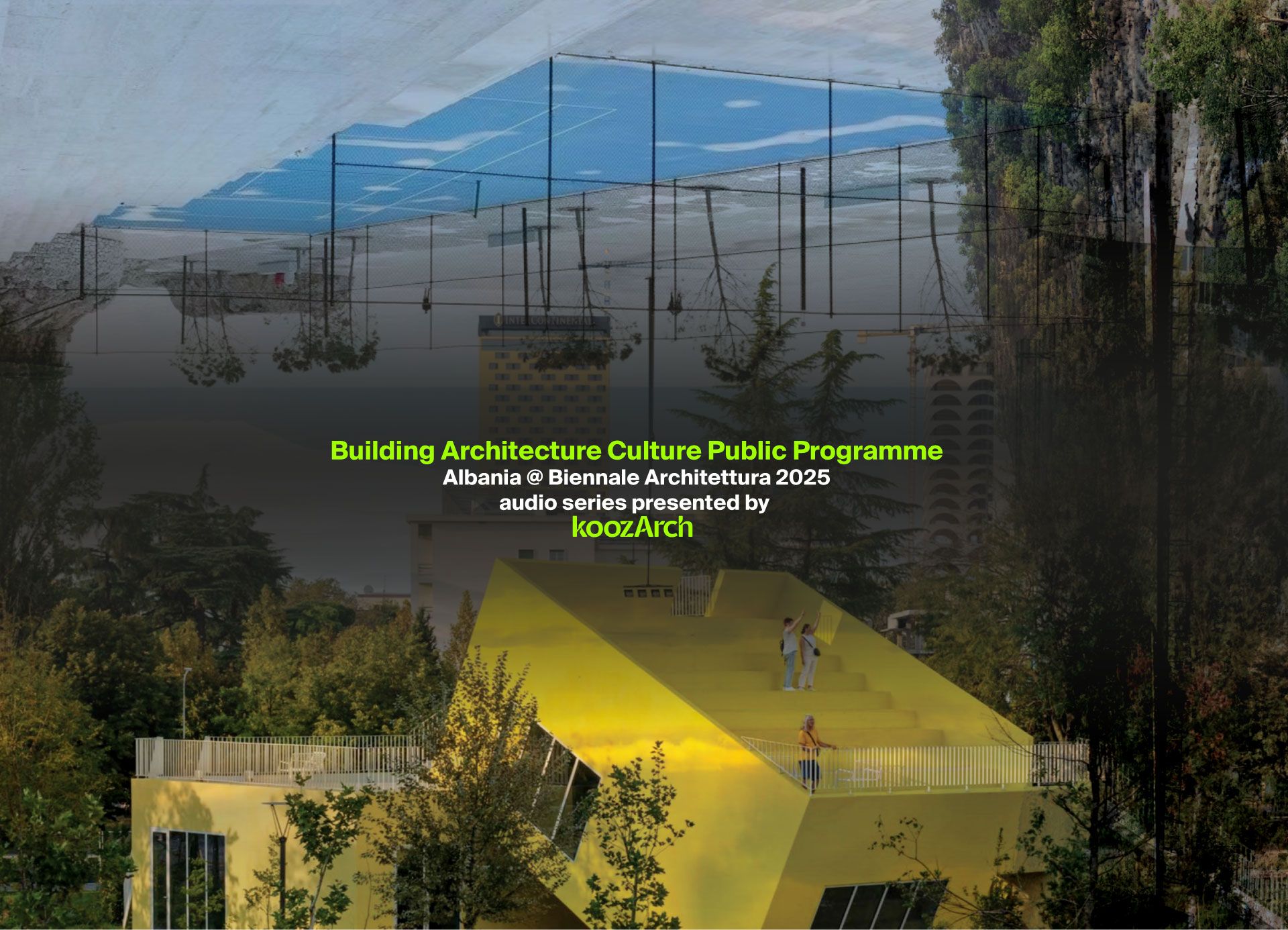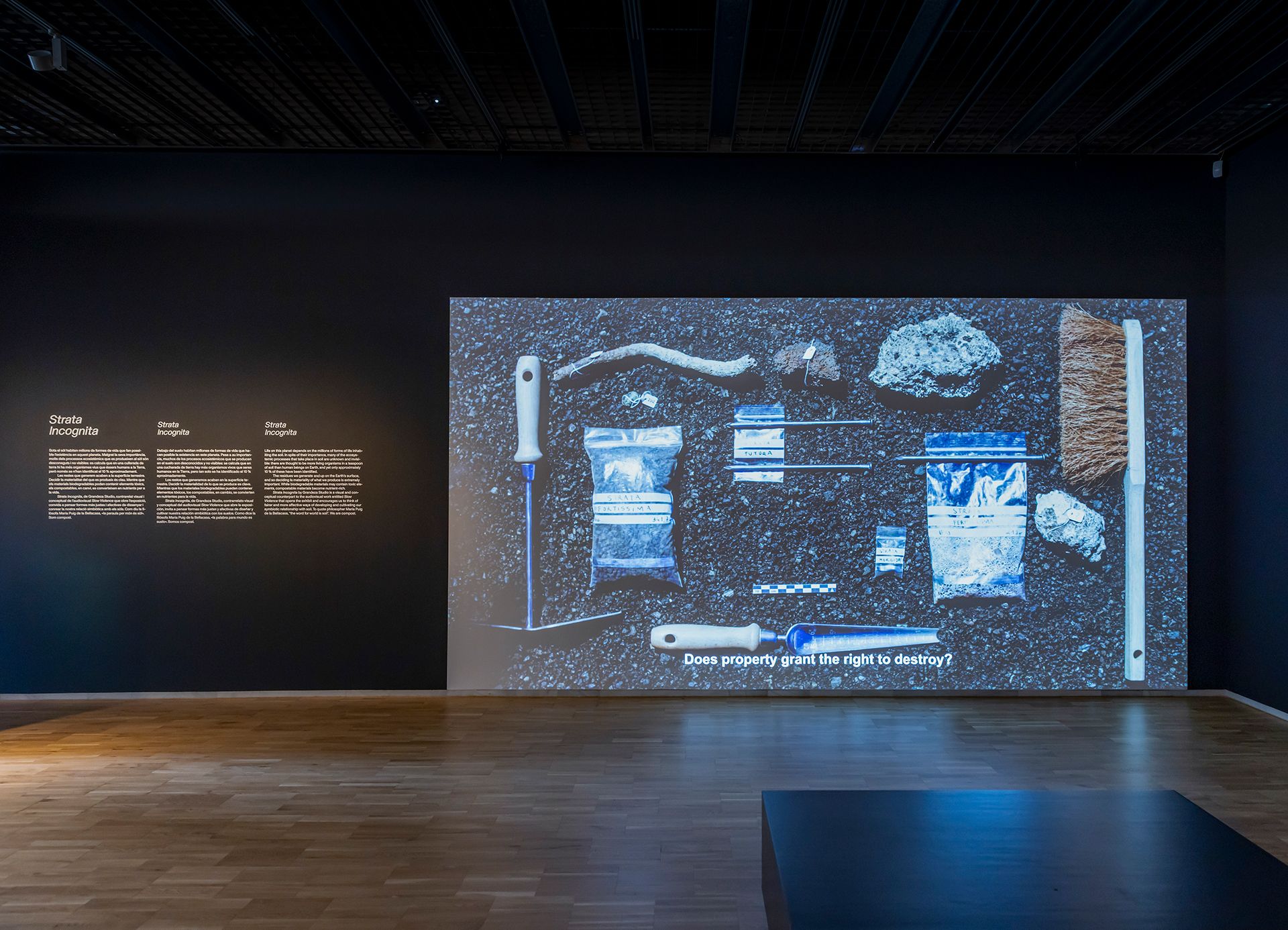This year’s Architecture Biennale in Tallinn (TAB 2022), dedicated to the theme “Edible; Or The Architecture of Metabolism” critically addresses the “extractive, consumptive and contaminating nature of the built environment”. By bringing the planetary, architectural, individual and non-human scale, it tackles visceral and compelling issues, proposing “an architecture that produces resources, digests its waste and self-decomposes”. Curated by Lydia Kallipoliti and Areti Markopoulou in collaboration with Ivan Sergejev, the Biennale questions architecture’s lifecycles, food and materials’ consumption from both living organisms and inert objects such as buildings. KoozArch’s interest in the un-built as a tool for critical thinking and political action, therefore, opens to issues pertaining to metabolism and circularity, addressing architectural but also individual agency in tackling the global climate, health and social crises.
TAB’s main exhibition “EDIBLE” specifically reimagines “planetary food systems along with architecture’s capacity to perform metabolic processes” fostering kinship, empathy and interspecies alliances. The exhibition, in fact, explores the complex network of multi-scalar and multi-species interdependencies that connect food, human and architecture, opening the architectural debate to issues related culture, technology and even biology. Disciplines that may seem so distant therefore collide in “Edible; Or The Architecture of Metabolism”. The exhibition, indeed, engages with three main scales, starting from the domestic to the architectural and the planetary, it also focuses on the past and the future. Concerning the small scale of the domestic and, consequently, the individual, “Metabolic Home” - one of the five main themes explored in the exhibition - looks at mundane activities such as food preparation and consumption. At the architectural scale, “From Brick to Soil” explores the lifecycle of building materials, including prototypes and new building components. The section “Food and Geopolitics” is a multi-media exploration of the planetary implications of the issues explored in the exhibition. “The Archaeology of Architecture and Food Systems” focuses, instead, on the past; it is an archive of 20th century radical projects that address the subject of the exhibition and is specifically curated by Lydia Kallipoliti, Sonia Halston and Santana Lahiri. As per the exhibition’s vision for the future, the “Future Food Deal” section, the outcome of a competition, is presented as an open library of manuals, cookbooks, manifestoes and much more, with the contribution of Carlo Ratti (MIT Senseable City Lab), Aaron Betsky (Virginia Teck), Anna Puijaner (MAIO/GSAPP) and many others.
The installation programme at TAB 2022 also features “Fungible Non-Fungible”, the first-ever blockchain-funded pavilion conceived by iheartblob, with whom we discussed the ambitions behind the project last July ("Fungible Non-Fungible" interview with iheartblob). Moreover, rather than proposing the construction of new residential buildings, the winner of the Vision Competition entitled “Circular Block: Reinventing the Mikrorayon” suggests the demolition of the old buildings in the Lasnamae district and a subsequent change in its living environment, reflecting KoozArch’s interest in un-building rather than the continuous consumption of natural and mineral resources through new constructions. A students’ exhibition titled “Handful” will also open this Friday, and a symposium will take place throughout TAB’s opening days, with keynote speaker Beatriz Colomina.
Check out the Official Programme at TAB22

courtesy of iheartblob.





